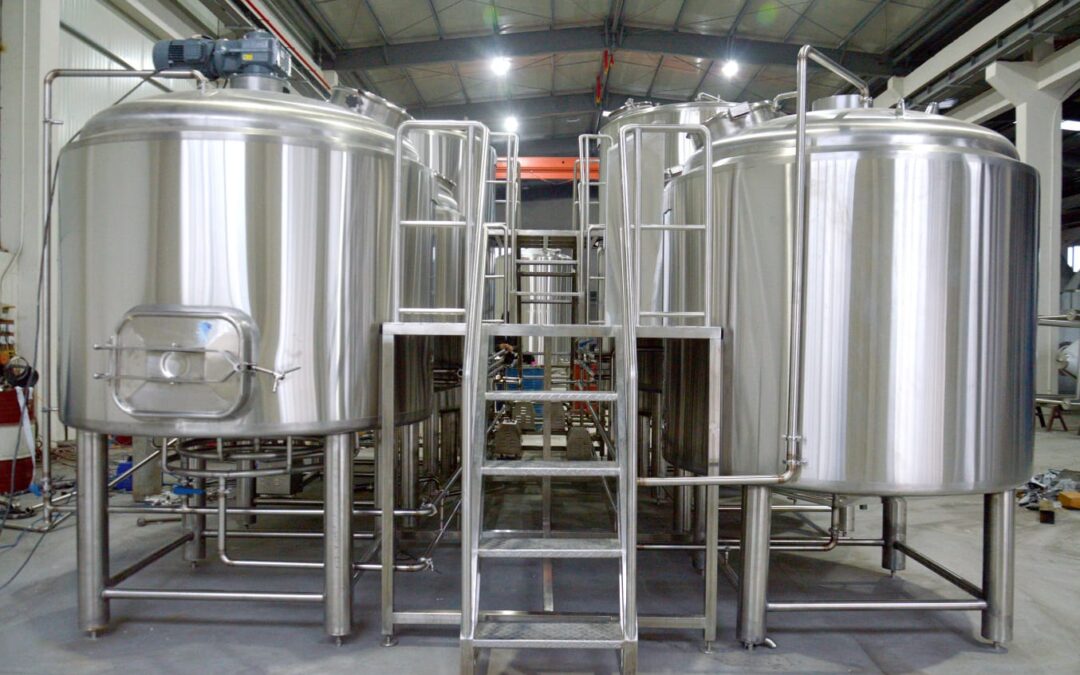The first step to improving the efficiency of your Brewhouse is to promote and cultivate a positive cultural experience. Brewhouse culture refers to the unique environment, practices, and values that are cultivated within a brewery. It encompasses the attitudes, behaviors, and traditions that exist among the brewers and other staff members working in the brewhouse.
Here Are Some Key Aspects That Contribute To Brewhouse Culture:
Passion for Brewing: A strong passion for the craft of brewing is at the core of brewhouse culture. Brewers are deeply committed to creating high-quality, flavorful beers and constantly seek to improve their skills and knowledge.
Collaboration and Teamwork: Collaboration and teamwork are essential in a brewhouse. Brewers work together closely, sharing ideas, techniques, and experiences. They often engage in collective decision-making processes to ensure the best possible outcomes for the brewery.
Creativity and Innovation: Brewhouse culture encourages creativity and innovation in brewing. Brewers are encouraged to experiment with different ingredients, brewing methods, and styles to develop unique and exciting beers. They constantly push boundaries and strive to create new flavors and experiences for beer enthusiasts.
Attention to Detail: Precision and attention to detail are critical in brewing. Brewers meticulously follow recipes, measure ingredients accurately, monitor fermentation processes, and maintain quality control standards. This commitment to detail ensures consistency and excellence in the final product.
Continuous Learning: Brewing is an ever-evolving field, and brewhouse culture embraces continuous learning. Brewers stay updated on industry trends, attend workshops, conferences, and collaborate with other brewers to expand their knowledge and skills. They also learn from their own brewing experiences and are open to feedback and constructive criticism.
Respect for Tradition: While embracing innovation, brewhouse culture also respects and honors brewing traditions. Brewers often draw inspiration from classic beer styles, historical brewing techniques, and cultural influences, paying homage to the rich heritage of brewing.
Sense of Community: Brewhouse culture fosters a sense of community within the brewery and the larger beer industry. Brewers often engage with local beer enthusiasts, participate in beer festivals, and collaborate with other breweries. They take pride in contributing to the beer culture and enjoy sharing their passion with others.
Enhancing Efficiency in Your Brewhouse: Strategies for Brewing Success
Operating a brewhouse requires a delicate balance of artistry, precision, and efficiency. Whether you’re a seasoned brewer or just starting out, optimizing the efficiency of your brewhouse can lead to improved productivity, consistent quality, and overall success. In this article, we will explore key strategies to enhance the efficiency of your brewhouse operations.
- Streamline Workflow:
Efficient workflow is the backbone of a productive brewhouse. Evaluate your current processes and identify areas where you can streamline operations. Optimize the layout of your brewhouse to minimize unnecessary movement and reduce the time spent on tasks. This could involve rearranging equipment, organizing supplies, and implementing clear protocols for each step of the brewing process.
- Batch Scheduling and Planning:
Effective batch scheduling and planning are vital for maximizing efficiency. Develop a production schedule that accounts for factors like fermentation time, ingredient availability, and tank availability. Utilize software tools or spreadsheets to plan and track each batch, ensuring smooth transitions between different stages of the brewing process. A well-designed schedule will help you avoid bottlenecks, optimize resource utilization, and maintain a consistent brewing rhythm.
- Inventory Management:
Efficient inventory management is crucial to minimize downtime and maintain a continuous brewing operation. Keep a detailed inventory of ingredients, packaging materials, cleaning supplies, and equipment. Implement a system for tracking inventory levels, setting reorder points, and monitoring expiration dates. Regularly review and update your inventory to prevent shortages or excess stock, which can disrupt brewing operations and increase costs.
- Equipment Maintenance:
Regular equipment maintenance is essential to prevent breakdowns and optimize brewing efficiency. Develop a maintenance schedule for all brewing equipment, including cleaning and calibration routines. Perform routine inspections, identify potential issues, and promptly address any maintenance or repair needs. Well-maintained equipment operates more efficiently, reduces the risk of unexpected downtime, and extends its lifespan.
- Staff Training and Communication:
Invest in comprehensive training for your brewhouse staff. Ensure they are knowledgeable about all aspects of the brewing process, safety protocols, and quality control measures. Encourage open communication and collaboration among team members to foster a culture of continuous improvement. Regularly conduct staff meetings and training sessions to address concerns, share best practices, and implement new techniques or technologies.
- Data Collection and Analysis:
Embrace data-driven decision-making to optimize your brewing processes. Implement systems to collect and analyze data such as brew logs, fermentation profiles, quality control metrics, and production yields. Use this information to identify trends, troubleshoot issues, and make informed adjustments to your brewing parameters. Analyzing data can help you refine recipes, reduce waste, improve consistency, and enhance overall efficiency.
- Embrace Technology:
Leverage brewing software and technology solutions to streamline operations and increase efficiency. These tools can help with recipe formulation, inventory management, scheduling, quality control, and data analysis. Automation and monitoring systems can assist in precise temperature control, fermentation monitoring, and recipe scaling. Embracing technology reduces manual errors, improves process accuracy, and frees up time for brewers to focus on creativity and innovation.
Overall, brewhouse culture represents the values, practices, and camaraderie within a brewery. It combines craftsmanship, creativity, collaboration, and a deep appreciation for beer, resulting in a vibrant and dynamic environment dedicated to producing exceptional brews. Improving the efficiency of your brewhouse is a continuous journey that requires attention to detail, a commitment to excellence, and a willingness to adapt. By implementing the strategies discussed above, you can optimize your brewing processes, increase productivity, and produce high-quality beer consistently. Remember, a more efficient brewhouse not only leads to greater profitability but also allows you to dedicate more time to what you love most: brewing exceptional beer.

